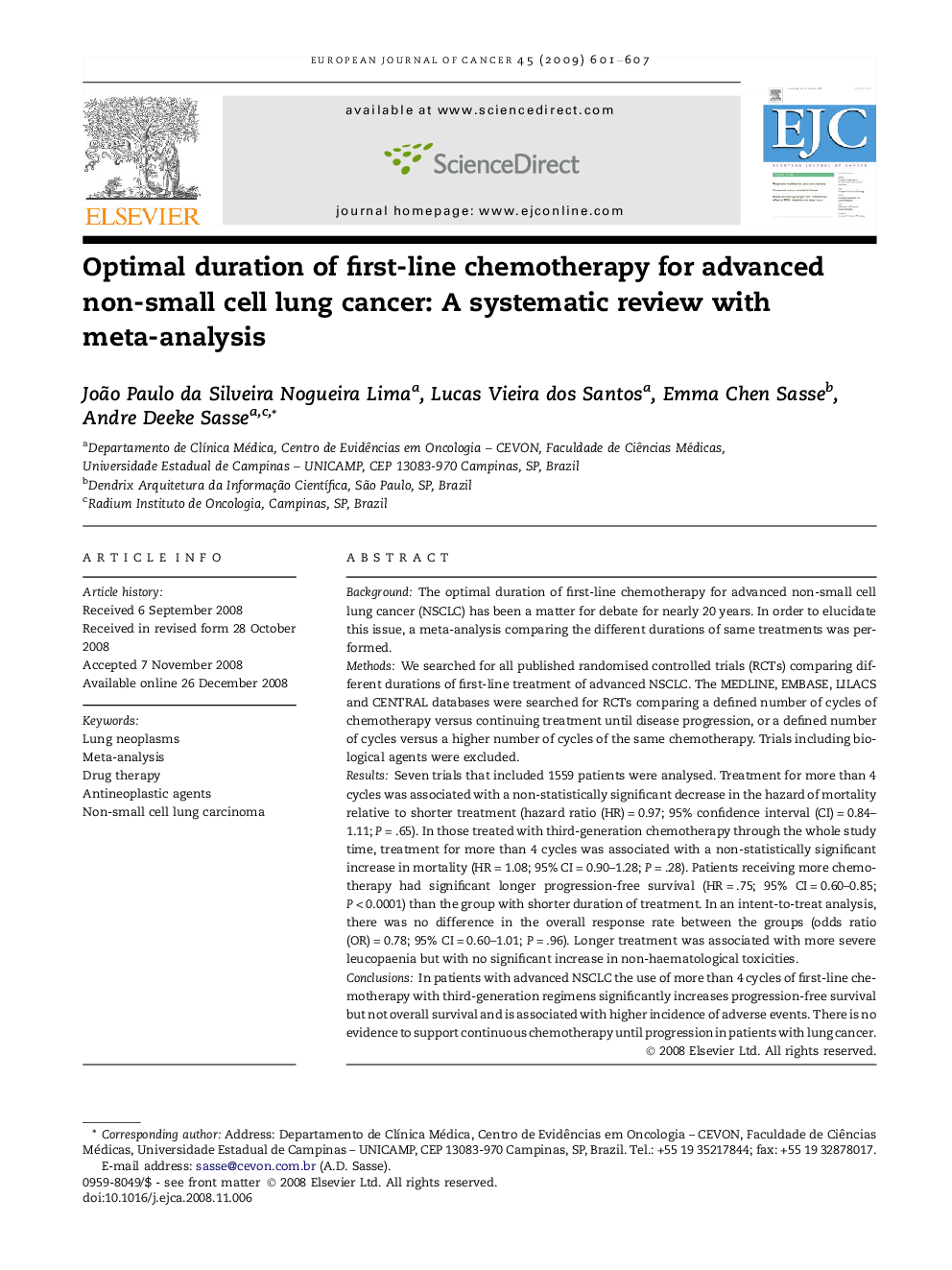| Article ID | Journal | Published Year | Pages | File Type |
|---|---|---|---|---|
| 2125525 | European Journal of Cancer | 2009 | 7 Pages |
BackgroundThe optimal duration of first-line chemotherapy for advanced non-small cell lung cancer (NSCLC) has been a matter for debate for nearly 20 years. In order to elucidate this issue, a meta-analysis comparing the different durations of same treatments was performed.MethodsWe searched for all published randomised controlled trials (RCTs) comparing different durations of first-line treatment of advanced NSCLC. The MEDLINE, EMBASE, LILACS and CENTRAL databases were searched for RCTs comparing a defined number of cycles of chemotherapy versus continuing treatment until disease progression, or a defined number of cycles versus a higher number of cycles of the same chemotherapy. Trials including biological agents were excluded.ResultsSeven trials that included 1559 patients were analysed. Treatment for more than 4 cycles was associated with a non-statistically significant decrease in the hazard of mortality relative to shorter treatment (hazard ratio (HR) = 0.97; 95% confidence interval (CI) = 0.84–1.11; P = .65). In those treated with third-generation chemotherapy through the whole study time, treatment for more than 4 cycles was associated with a non-statistically significant increase in mortality (HR = 1.08; 95% CI = 0.90–1.28; P = .28). Patients receiving more chemotherapy had significant longer progression-free survival (HR = .75; 95% CI = 0.60–0.85; P < 0.0001) than the group with shorter duration of treatment. In an intent-to-treat analysis, there was no difference in the overall response rate between the groups (odds ratio (OR) = 0.78; 95% CI = 0.60–1.01; P = .96). Longer treatment was associated with more severe leucopaenia but with no significant increase in non-haematological toxicities.ConclusionsIn patients with advanced NSCLC the use of more than 4 cycles of first-line chemotherapy with third-generation regimens significantly increases progression-free survival but not overall survival and is associated with higher incidence of adverse events. There is no evidence to support continuous chemotherapy until progression in patients with lung cancer.
